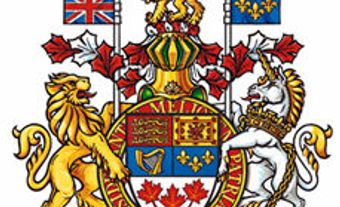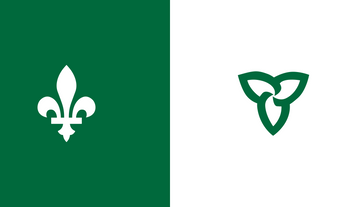The Official Languages Act of 1969 made English and French the two official languages in Canada. The Official Languages Act of 1988 offered more detail about how the policies of bilingualism should be put into practice. It highlighted the responsibilities of federal institutions with respect to official languages in Canada. An important goal of the Official Languages Act is to ensure the equality of English and French in federal institutions and in Canadian society.
(This article is a plain-language summary of the Official Languages Act of 1988. If you are interested in reading about this topic in more depth, please see our full-length entry on The Official Languages Act (1988).)
Details of the Official Languages Act (1988)
The Official Languages Act of 1988 contains a preamble (an introduction) and 14 Parts.
Part 1: Proceedings of Parliament
English and French are the official languages to be used in Parliament.
Part 2: Legislative and Other Instruments
Acts of Parliament must be published in French and English. The proceedings and procedures in federal courts, treaties, federal-provincial agreements, and regulations must also be published in French and English.
Part 3: Administration of Justice
English and French are the official languages of the federal courts. Participants in these courts can use either English or French.
Part 4: Communication with and Services to the Public
The federal government must provide services in French and English.
Part 5: Language of Work
English and French are the languages of work in all federal institutions. Federal employees have the right to use either English or French.
Part 6: Participation of English-speaking and French-speaking Canadians
English and French speakers have equal opportunity.
Part 7: Advancement of English and French
The federal government will help French and English minority groups in Canada.
Part 8: Responsibilities and Duties of the Treasury Board in Relation to Official Languages of Canada
The Treasury Board of Canada must help to direct and implement the policies of the Official Languages Act.
Part 9: Commissioner of Official Languages
This portion of the Act outlines the tasks of the Commissioner of Official Languages. It also explains how citizens of Canada can make complaints to the Commissioner when they believe the Act has been violated. It also describes the steps that the Commissioner must follow to investigate these complaints.
Part 10: Court Remedy
This part of the Act contains information about the role of the Federal Court when citizens make complaints regarding violations of the Official Languages Act. If the Federal Court decides that the Act has been violated, it has the power to grant a remedy. It can impose a penalty on the institution that violated the Act.
Part 11: General
This section of the Act states that the Canadian Human Rights Act is not affected by the Official Languages Act.
Part 12: Related Amendments (changes)
This part is about the Canadian laws affected by the Act.
Part 13: Consequential (resulting) Amendments
This section outlines amendments (changes) made to other Canadian laws by the Official Languages Act
Part 14: Transitional Provisions, Repeal and Coming into Force
This part of the Act repeals (cancels out) the Official Languages Act of 1969.

 Share on Facebook
Share on Facebook Share on X
Share on X Share by Email
Share by Email Share on Google Classroom
Share on Google Classroom





